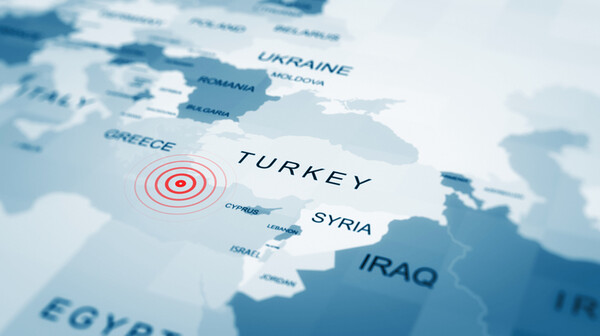Cholera has seen a recent resurgence with outbreaks popping up one after the other prompted by climate change, wars, and natural disasters wreaking havoc on fragile health systems, as seen in Pakistan, Nigeria, and Malawi.
Most recently, the earthquake in Syria and Turkey has added to the concerns about an already limited supply of oral cholera vaccines (OCV) available.

According to the World Health Organization (WHO), cholera is an acute diarrheal infection that can lead to potentially fatal dehydration caused by the ingestion of food or water contaminated with the bacterium Vibrio cholera.
Despite being easily treatable with a rehydration solution, cholera remains a global threat due to its high morbidity and mortality among vulnerable populations.
Accordingly, the WHO issued a statement in December last year stating that cholera cases and their geographical distribution globally have increased since 2021 with 23 countries reporting cholera outbreaks mainly in Africa and the Eastern Mediterranean.
In 2022, more than 29 countries reported cholera cases or outbreaks with risks of spreading further to countries sharing the border with these countries.
On top of this, the situation was further exacerbated after Shantha Biotechnics bowed out of the cholera vaccine manufacturing business last year.
Consequently, EuBiologics, a Korean vaccine manufacturer, remains the only company that can provide WHO-prequalified cholera vaccines for mass vaccination campaigns by the WHO.
In light of this situation, the WHO implemented temporary measures to reduce cholera vaccinations from two doses to one in October 2022 to deal with the shortage of supply.
Korea Biomedical Review spoke to an official from EuBiologics to understand the current situation with the supply and demand of cholera vaccines.
The official explained that the company directly supply the vaccine to some countries but 98-99 percent is supplied through UNICEF.
"If UNICEF gives us the required purchase order, we supply it accordingly to countries which include Nigeria, Cameroon, Malawi, Kenya, Democratic Republic of the Congo, Ethiopia, and others.”
However, regarding the Turkey and Syria crisis, he said that UNICEF has not yet requested the cholera vaccine but there is a possibility that UNICEF will request it in the future, and the company plans to actively cooperate then.
About 1.7 million cholera vaccine doses were sent to Syria before the earthquake but the internal infrastructure such as the transportation network has now collapsed, so it will not be easy to conduct a mass vaccination campaign now, he added.
Can EuBiologics’ capacity meet the rising demand?
EuBiologics’ production capacity currently stands at approximately 30 million doses which are almost all exported. The company is the largest supplier of OCVs in the world, representing more than 80 percent market share, and will be able to produce up to 90 million doses after expansion projects are completed this year.
Explaining the current market, he noted that the unit price of cholera vaccines is expected to rise by about 20 percent, and sales of cholera vaccines are expected to continue to increase as the effect of expanding cholera vaccines is expected from the second half of next year.
If the expansion is completed and the current pentavalent Euvichol-Plus is changed to the divalent Euvichol-S, the final supply of cholera vaccines will reach 90 million doses, with sales of up to 120 billion won ($93.5 million), he said.
In an effort to reduce the gap in supply and demand for cholera vaccines, the International Vaccine Institute (IVI) announced a technology transfer with South African biopharmaceutical company, Biovac, for end-to-end manufacturing of OCVs to scale up supply for African and global markets where the disease is endemic.
The agreement was supported with grants of $6.9 million from the Wellcome Trust and the Bill & Melinda Gates Foundation for the first phase of the project. The technology transfer process commenced in January 2023, with the first clinical trial batches expected to be produced in 2024. Subsequently, licensing of the product by the South African National Regulatory Authority (SAHPRA) is expected to be concluded in 2026 followed by WHO prequalification.
To help bring more cholera vaccines to market, IVI has previously conducted technology transfers with VaBiotech in Vietnam, Incepta in Bangladesh, Bharat Immunologicals and Shantha Biotechnics in India, and EuBiologics in Korea but EuBiologics is currently the only WHO pre-qualified after Shantha Biotechnics stopped cholera manufacturing.
Furthermore, IVI is currently engaged in the clinical development of an injection-type cholera vaccine called EuCCV together with EuBiologics which can be used for children younger than one-year-old for which the current OCV vaccine does not cover.
“The cholera conjugate vaccine is currently in phase 1 clinical trials with support from the RIGHT Foundation at three hospital trial centers domestically and trial results are expected in 2024," said Director of IVI’s Cholera Program, Dr. Julia Lynch. “However, phase 2 and 3 trials will be conducted in cholera-endemic countries.”
Related articles
- Korean health industry rushes to offer relief support to quake-struck Turkey, Syria
- Can tax credits help offset Korea’s annual vaccine trade deficit in 2023?
- Inventage Lab, EuBiologics to launch joint LNP production CDMO biz
- RIGHT Foundation, BMGF, FIND come together to achieve health equity with Korean companies
- EuBiologics to seek Philippines approval for EuCorVac-19 this month based on phase 3 interim data

